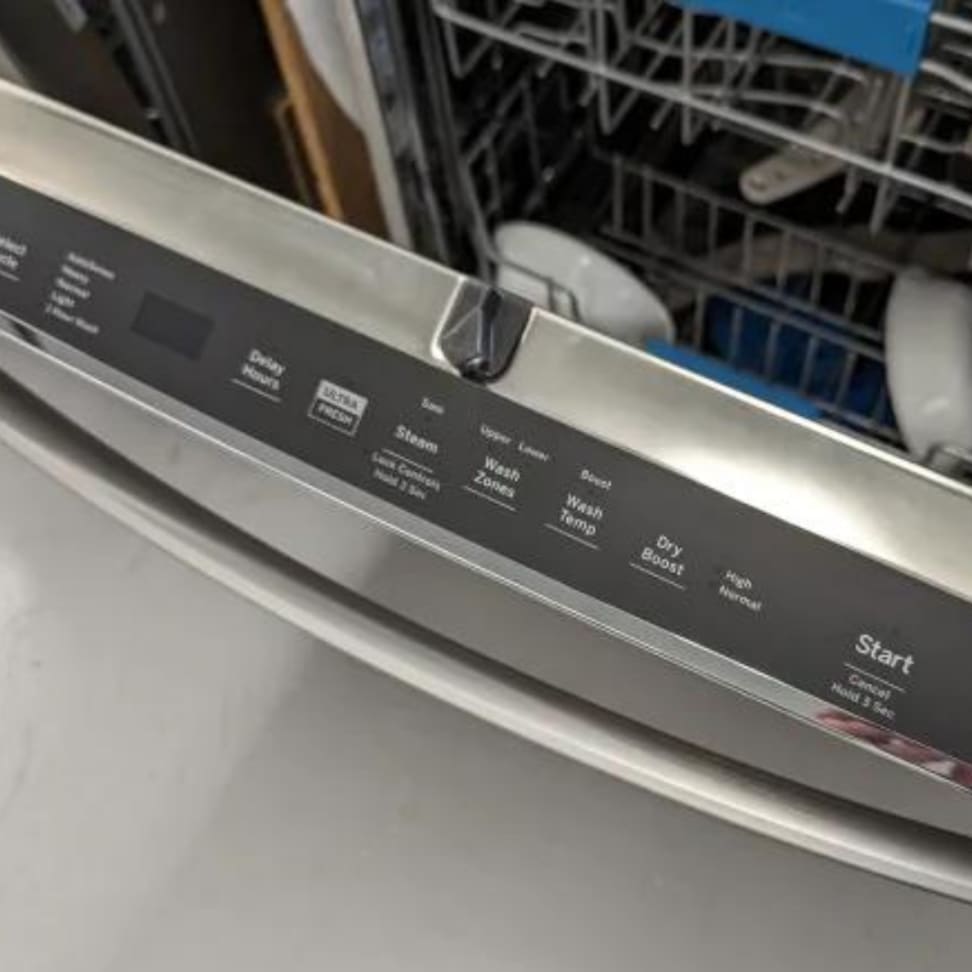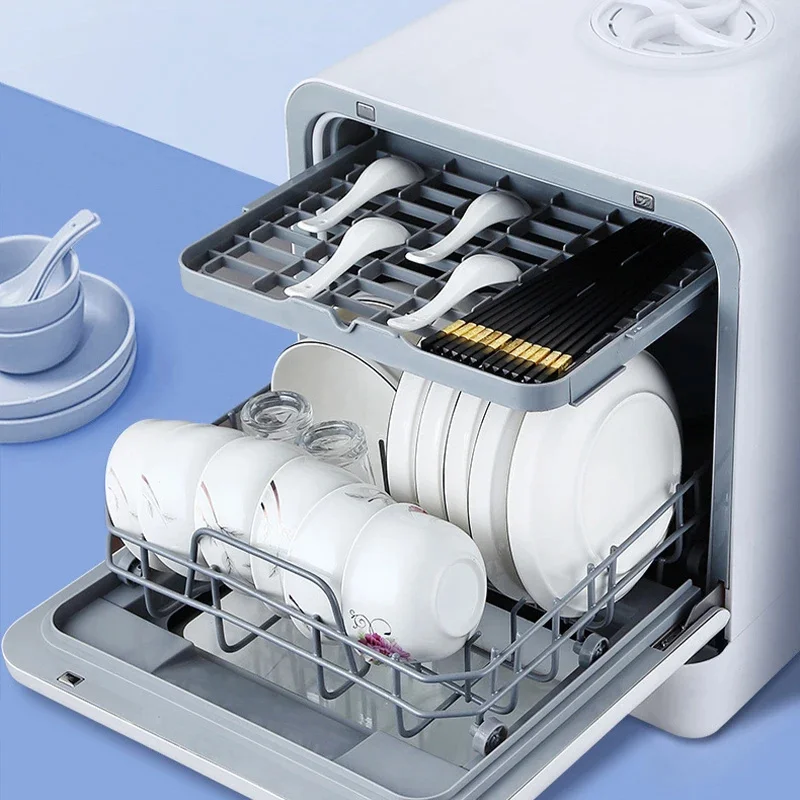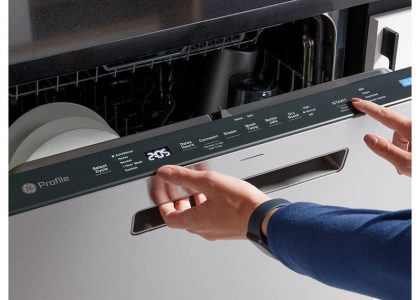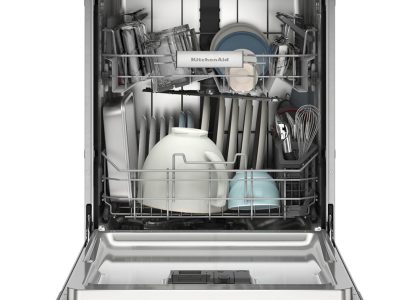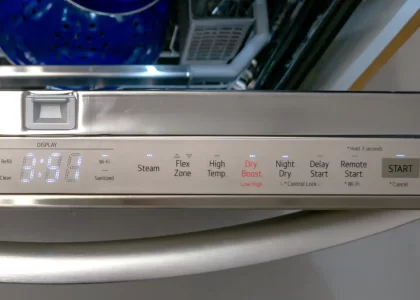Overview of Dishwasher Cycle Lengths
How long does it take for a dishwasher to run? Dishwasher cycles vary in length. Newer models have different types of cycles and lengths. Express cycles may last only an hour and a half. Energy-efficient machines might run for up to four hours. A regular cycle commonly lasts around two hours or more. This duration depends on the dishwasher’s age and model.
Modern dishwashers often feature various cycles. These include light, normal, and heavy cycles. Light cycles are for delicate items. Normal cycles handle daily dishware and cutlery. Heavy cycles are for more intensive cleaning needs.
Besides these, there are eco-wash, quick wash, and rinse/hold cycles. Eco-wash saves energy but takes longer. Quick wash cleans lightly soiled dishes quickly. Rinse/hold lets you rinse and then wait for a full load.
Auto clean, delay wash, half load, and delicate cycles are also common. Auto clean adjusts settings based on how dirty items are. Delay wash lets you run the dishwasher at a specific time. Half load is for smaller dish loads. The delicate cycle treats fragile items gently.
The best time to run the dishwasher might be at night. It can be less noisy and may save on energy costs. Running it when full also improves efficiency.
When using your dishwasher, pick the right cycle for your needs. Longer cycles can save more energy and water than shorter ones. Do not open your dishwasher mid-cycle, as it might disrupt the process.
Choosing the right dishwasher cycle can be simple with a good understanding of the options. This knowledge helps to save energy and get your dishes clean effectively.
Common Dishwasher Cycle Types and Their Duration
Understanding the various dishwasher cycles is crucial to optimizing your dishwasher’s performance. Here’s a quick guide to the common types and their expected run times:
Light Cycle
- Duration: Approximately 1 to 1.5 hours.
- Usage: Best for delicate glassware and lightly soiled items.
Normal Cycle
- Duration: Around 2 to 3 hours on average.
- Usage: Ideal for daily use on regular plates, bowls, and cutlery that aren’t heavily dirty.
Heavy Cycle
- Duration: Can exceed 3-4 hours.
- Usage: This cycle tackles heavily soiled pots, pans, and durable dishware with intense cleaning.
Eco-Wash
- Duration: Typically longest, 3-4 hours or more.
- Usage: Uses less energy and water over the longer period, best for energy conservation.
Quick Wash
- Duration: Less than 1 hour, often around 30 minutes.
- Usage: For dishes that have been pre-rinsed or lightly dirtied, needing a fast clean.
Rinse/Hold
- Duration: Usually short, about 10-15 minutes.
- Usage: Rinses dishes and holds them before a full wash, preventing odor while waiting for a full load.
Auto Clean
- Duration: Varies based on soil level detection.
- Usage: Automatically adjusts settings for a customized wash.
Delay Wash
- Duration: Same as normal, but starts at a later, pre-determined time.
- Usage: Convenient for washing dishes at low-tariff energy hours or when out of the house.
Half Load
- Duration: Slightly less than a normal cycle due to the smaller load.
- Usage: Efficient for washing smaller dish loads without waiting for a full dishwasher.
Delicate Cycle
- Duration: Similar to light cycle, up to 1.5 hours.
- Usage: Gently cleans fragile items like fine china and stemware.
Choosing the right cycle will depend on the type of dishes, the level of soil, and your energy consumption preferences. Always consider the specific needs of your load to ensure both efficiency and cleaning effectiveness.
Factors Influencing Dishwasher Run Time
Several factors can impact how long your dishwasher takes to run a cycle. Here’s a look at the key influences:
Water Temperature
- Water that isn’t hot enough can prolong the cycle. Dishwashers often heat water to an optimal temperature for effective cleaning.
Type of Detergent
- The detergent type matters. Pods and powders dissolve slower than liquid or gel types. This can affect cycle length.
Dishwasher Age
- New dishwashers may run longer. They save energy and water over time but do so through extended cycles.
Dishwasher Model
- Different models have various cycle options and durations. Check your model’s specifics to understand its cycles.
Size and Soil Level of Load
- A full, heavily soiled load can add time. Dishwashers adjust to clean thoroughly.
Cycle Selection
- Options like pre-rinsing or heated drying influence run time. Added functions can extend cycles.
Understanding these factors can help you select the best cycle and load arrangement. This can optimize your dishwasher’s efficiency and cleaning power. Remember to consult your dishwasher’s manual for model-specific information and suggestions. Pick cycles that match your dish’s soil level without using unnecessary water or energy. This knowledge can prevent long cycles and save on your energy bills.
Energy-Efficient Dishwashers: Longer Cycles and Better Performance
Energy-efficient dishwashers have changed how we use appliances. They are designed to save energy and water. This can lead to longer cycle times. But don’t worry, this isn’t bad. Longer cycles on energy-efficient models mean better performance. Here’s why:
- Water Usage: Newer dishwashers use less water, cutting down on waste. They clean dishes over extended periods, reducing the need to refill.
- Energy Savings: Energy-efficient designs save power even with longer cycles. This is because they work more effectively, using heat and water at optimal times.
- Performance: Even with lower water and energy use, these machines clean well. They might take up to four hours, but they ensure dishes come out spotless.
- Cycle Types: Many energy-efficient models offer cycles like eco-wash. These take longer but use less power throughout the cycle.
Remember, longer cycle times can mean your dishwasher is using resources wisely. It’s balancing cleaning power with energy use. So next time your dishwasher runs longer, know that it’s helping save the planet and your bills.
Optimizing Dishwasher Run Time for Efficiency
Maximizing the efficiency of your dishwasher not only saves energy but also preserves its lifespan. Here are ways to ensure your dishwasher runs as efficiently as possible:
Choose the Right Cycle for the Load
- Assess Soil Level: Pick a cycle that matches how dirty your dishes are.
- Avoid Overloading: Place dishes to allow water and detergent to reach every surface.
Load Dishes Properly
- Arrange Dishes: Place them for optimum cleaning and drying.
- Check Spinning Arms: Ensure they’re not blocked for even water distribution.
Use High-Quality Detergent
- Choose Effective Detergent: It can reduce the need for longer cycles.
- Follow Recommended Amount: Too much can waste detergent and too little may not clean effectively.
Maintain Adequate Water Temperature
- Hot Water: Allows for faster and better cleaning. Ensure your hot water heater is set correctly.
Regular Maintenance
- Clean Filters: Remove food particles to prevent obstructions and odors.
- Inspect and Clean Spray Arms: Keep water flowing freely.
Run Full Loads
- Wait for a Full Dishwasher: It saves water and energy over multiple small loads.
- Conserve Water: A full but not overloaded dishwasher maximizes each run.
By following these tips, you can optimize your dishwasher’s run time. This results in clean dishes, reduced energy use, and lower utility bills. Always refer to your dishwasher’s manual for specific guidance tailored to your model.
The Impact of Water Temperature and Detergent on Cycle Time
Water Temperature and Its Effect
Getting dishes clean quickly often relies on hot water. Dishwashers usually need to reach a certain temperature to work best. If the water going into your dishwasher is cool, the machine has to heat it up. This can make a cycle take longer.
For faster cycles, ensure your home’s hot water heater is set right. This means your dishwasher can start cleaning with hot water right away.
Choosing the Right Detergent
What kind of detergent you use can also change how long a cycle takes. Faster dissolving types like liquids or gels can shorten cycle time. Powders and pods take longer to break down. To speed things up, use a detergent that works quickly.
Dosage Matters
How much detergent you use affects the cycle. Too much can cause extra rinse cycles to remove the suds. Not enough and the dishes won’t get clean on the first run. Follow the recommended amount for the best balance. The right amount helps your dishwasher run efficiently.
Summary
Hot water helps clean faster. The right detergent and amount can make cycles quicker. Setting up your dishwasher for success means you get clean dishes without unnecessary waiting.
Troubleshooting Long Dishwasher Cycles
When your dishwasher runs longer than usual, it’s important to find the cause.
Check Water Temperature
Ensure hot water is available to your dishwasher. A water heater set too low can extend cycle times.
Examine Detergent Use
Make sure you’re using the right detergent and amount. Too much or the wrong kind can slow cycles.
Inspect for Clogs
Look for food particles clogging the filter or spray arms. Clear them to improve water flow.
Review Cycle Add-Ons
Extra options like heated dry can make cycles longer. Use them only when necessary.
Confirm Load Size
An overloaded dishwasher can take longer to finish. Load properly for best efficiency.
Investigate Malfunctions
If the dishwasher is still slow, it might need a repair. Check for mechanical issues.
Consult the Manual
Use your dishwasher’s manual for troubleshooting. Follow specific instructions for your model.
By pinpointing and addressing these issues, you can often reduce the run time and improve the overall efficiency of your dishwasher.
Best Practices for Running Your Dishwasher
When operating your dishwasher, following best practices ensures efficiency and longevity. Here are some tips:
Load Your Dishwasher Correctly
- Arrange dishes with space in between for water to circulate.
- Position dirty surfaces so they face the spray arms.
Select the Appropriate Cycle
- Use a heavier cycle for very dirty dishes.
- Choose a lighter cycle for less soiled items to save energy.
Run Full Loads
- Wait until the dishwasher is full to run a cycle.
- Avoid overloading, which can lead to poor cleaning and wasted energy.
Use the Right Detergent
- Opt for a high-quality detergent suited for dishwashers.
- Measure the correct amount to avoid residue on dishes.
Schedule Dishwasher Use
- Run your dishwasher during off-peak energy hours if possible.
- Consider using the delay start feature to take advantage of lower rates.
Maintain Your Dishwasher
- Clean the filter regularly to prevent blockages.
- Check and clean spray arms to ensure they spin freely.
Consider Energy and Water Temperature
- Ensure your water heater is set to an efficient temperature.
- Hot water works better and can shorten the dishwasher cycle.
By applying these simple practices, you can make sure that your dishwasher runs optimally, using the minimal time required for a clean result. This not only guarantees that your dishes are sparkling but also contributes to energy savings and appliance longevity.



